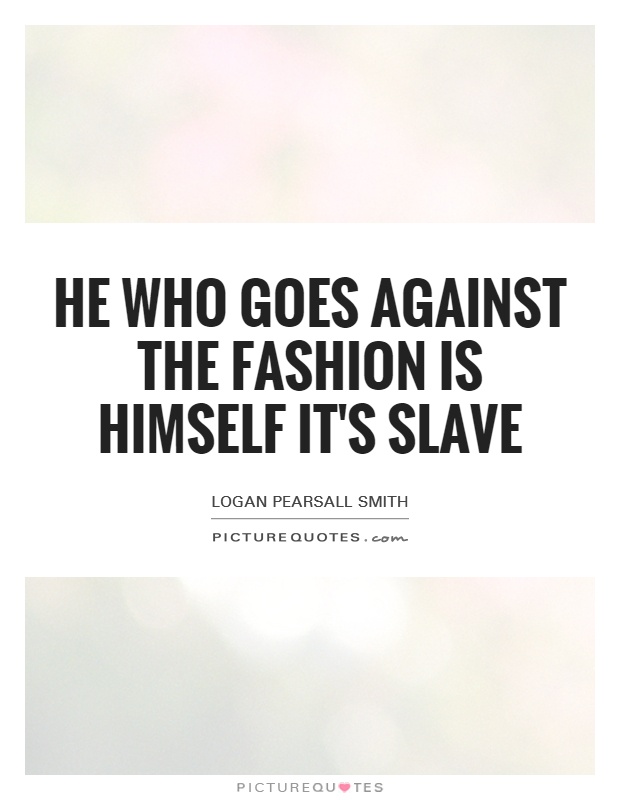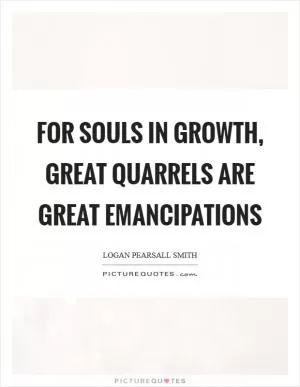He who goes against the fashion is himself it's slave

He who goes against the fashion is himself it's slave
Logan Pearsall Smith, a British essayist and critic, is often quoted as saying, "He who goes against the fashion is himself its slave." This statement reflects Smith's belief that individuals who resist or reject societal trends and norms often find themselves constrained by their own rebellion. In other words, those who try to go against the grain may ultimately become trapped by their own defiance.Smith's observation can be interpreted in various ways. On one hand, it suggests that individuals who resist conformity may still be influenced by the very forces they seek to oppose. By defining themselves in opposition to prevailing trends, they may inadvertently become beholden to those trends in a different way. For example, someone who rejects mainstream fashion may find themselves conforming to an alternative subculture or aesthetic, thereby still being subject to the pressures of social expectations.
Furthermore, Smith's statement highlights the paradoxical nature of rebellion. In attempting to break free from societal constraints, individuals may find themselves creating new constraints for themselves. By defining themselves in opposition to the status quo, they may limit their own freedom and autonomy. This can be seen in various contexts, such as countercultural movements that eventually become mainstream or political revolutions that give rise to new forms of oppression.












 Friendship Quotes
Friendship Quotes Love Quotes
Love Quotes Life Quotes
Life Quotes Funny Quotes
Funny Quotes Motivational Quotes
Motivational Quotes Inspirational Quotes
Inspirational Quotes